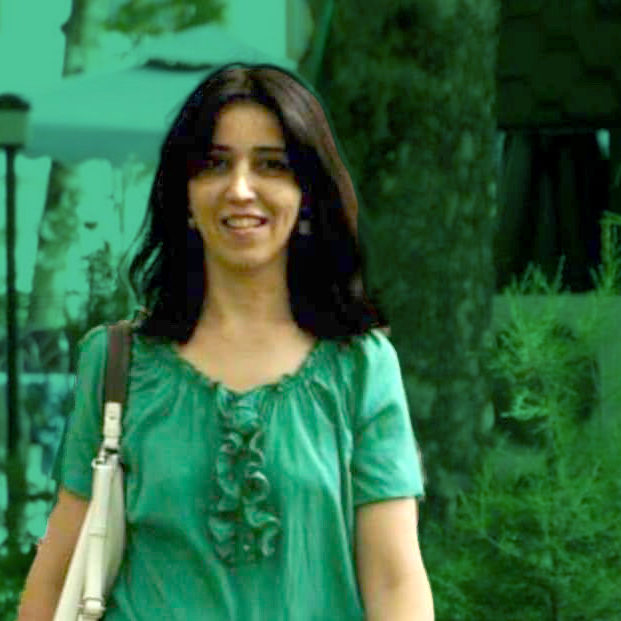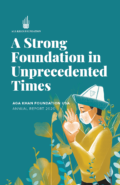Answering
the Call
Muslima Zardodkhonova, a public health staff member at the Aga Khan Health Services, worked to connect rural communities to healthcare through the virtual helpline supported by Thrive Tajikistan.
AKHS
Annual Report 2020
Supporting Tajikistan’s COVID-19 Response
In April 2020, Tajikistan diagnosed their first cases of COVID-19. As news of these cases spread across the country, many people were concerned because so little was known then about the coronavirus.
This caused a wave of doctors’ visits in Gorno-Badakhshan Autonomous Oblast (GBAO), even by those not exhibiting any symptoms. This sharp influx of patients and lack of appropriate diagnostic capabilities at the start of the pandemic strained the health system in the area before medical facilities were able to get the upgrades and training needed to respond to the pandemic.
At the same time, people with COVID-19 symptoms living in this remote and mountainous area had limited accessibility to health centers because of difficult terrain and poor roads.
As the people of GBAO grew increasingly worried about their health, their finances, and their future, Thrive Tajikistan stepped in to assist by supporting a virtual helpline staffed by the Aga Khan Health Services (AKHS).
As people grew increasingly worried about their health, Thrive Tajikistan stepped in to assist by supporting a virtual helpline center.
Thrive Tajikistan, a partnership between the United States Agency for International Development (USAID) and AKF, has been working to promote socio-economic development in Tajikistan since 2018, including improving access to healthcare and health financing.
Muslima Zardodkhonova, a public health staff member at the Aga Khan Health Services, worked to connect rural communities to healthcare through the virtual helpline supported by Thrive Tajikistan.
AKHS
“We…talked to every individual based on [their] concerns. If we found out that a person or a family needed a doctor, we would send family doctors to their house to check their condition.”
RIGHT: Dr. Mamadshoeva, a public health staff member at AKHS.
photo via Dr. Mamadshoeva

Dr. Mamadshoeva and her colleagues at AKHS managed the helpline center 24 hours a day, seven days a week from May through June 2020. In June, medical centers in GBAO were no longer overburdened by the initial panic about COVID-19, and the helpline operations shifted to Poliklinika and AKMC,K staff to provide continued support to the community.
The helpline played a crucial role in providing mental health support to both community members and healthcare professionals.
“There was an older woman who called us every single day, just to talk and have us calm her down,” Dr. Mamadshoeva remembers. “So, we talked to her and helped her to manage her feelings and fears every day. Thankfully, she managed not to get sick, and we were able to support her mental health throughout the months.”
A similar center was launched in the Khatlon region to support community members through April 2021, and information about how to reach the call centers was shared through social media, SMS messages, and local television channels.
Thrive Tajikistan and AKHS also launched a mobile health (mHealth) initiative with Tcell, one of the biggest telecommunications companies in the country, to reach 1,672 community members in Khatlon and GBAO with text messages on COVID-19, nutrition, and sanitation. Tcell is owned and operated by the Aga Khan Fund for Economic Development.
Since Thrive Tajikistan launched in 2018, it has worked with AKHS to form 56 community-based health financing (CBHF) schemes in Khatlon and GBAO and support 218 existing CBHF schemes in GBAO. Through CBHF schemes, community members can access healthcare with a lower financial burden by contributing money to a fund throughout the year and making loans to other members in need.
The CBHF schemes were critical during the height of the COVID-19 pandemic. In addition to their usual range of services, schemes also helped community members access diagnostic services, treatment, and transportation. The CBHF schemes were used to buy personal protective equipment, antiseptics, and food for COVID-19 patients.
Thrive Tajikistan’s work to help community members weather the pandemic builds on the program’s ongoing work in health.
